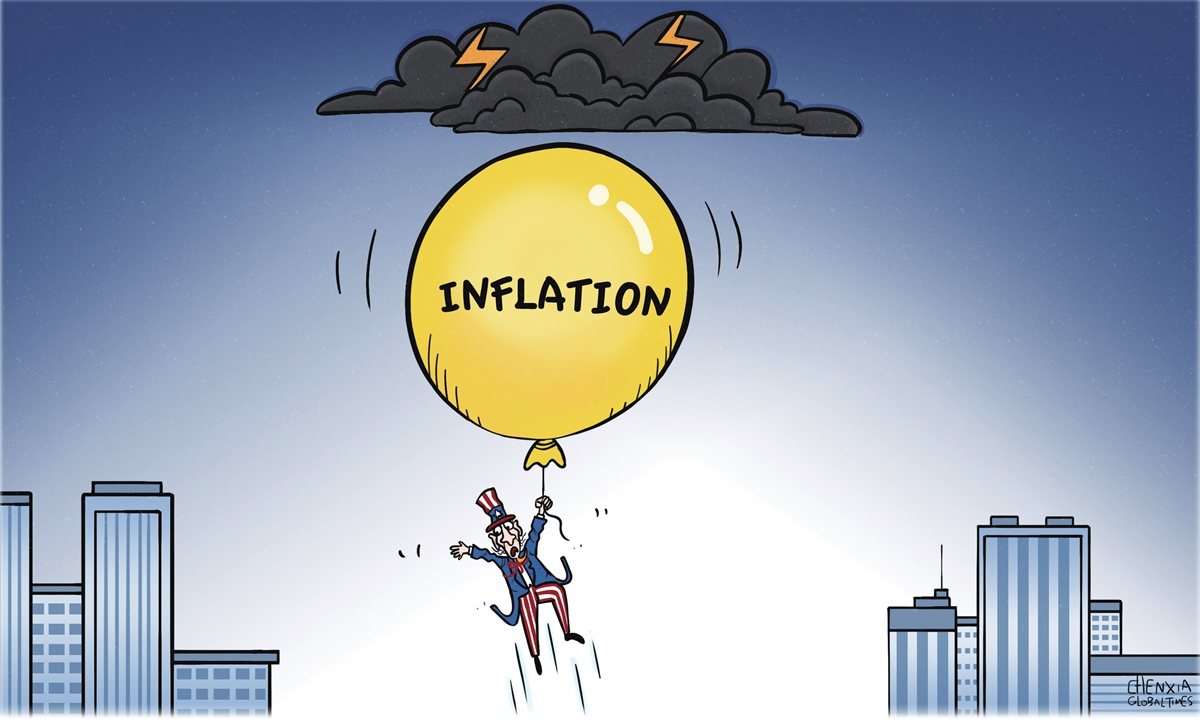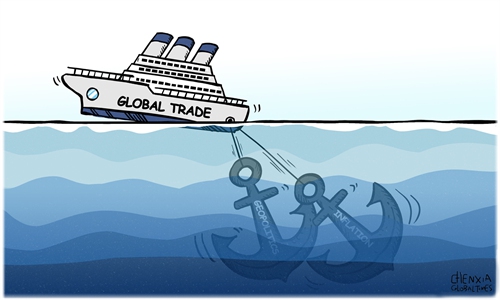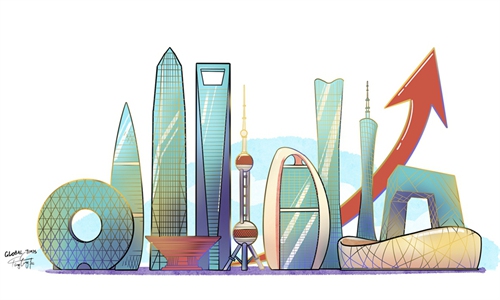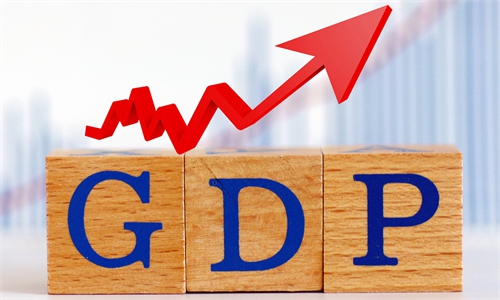
Illustration: Chen Xia/GT
China's consumer price index rose 1 percent in February from a year earlier, the lowest level in a year, data from the National Bureau of Statistics showed on Thursday.The inflation figure, to a certain extent, vindicates the judgment made last week by Liu Guoqiang, deputy governor of the People's Bank of China, the country's central bank, who said inflation is expected to remain mild in 2023 and "the overall inflation pressure is manageable."
It goes without saying that the moderate and stable trend of the inflation will allow the central bank more room to use monetary policy tools needed for supporting China's economic recovery, which is also an important basis for the country to resist imported inflation caused by the US monetary tightening, the regional geopolitical conflict, logistics bottlenecks, and the US tariffs on Chinese goods.
Previously, Western public opinion expressed concern that China's economic recovery would add to global inflation, but such fears now appear to be wide of the mark, as China's recovery will be driven more by consumption than investment.
Meanwhile, on the other side of the Pacific, there is growing uncertainty and confusion about US monetary policy direction. After a hawkish warning sent US stocks down sharply, Federal Reserve Chair Jerome Powell on Wednesday softened his tone slightly by saying policymakers will wait for fresh jobs and inflation data before deciding how much to raise interest rates later this month, but still reaffirmed his message of higher and faster interest rate hikes.
The Fed's ambiguous signals, to a certain extent, reflect the central bank's internal struggle over how to rein in inflation. While it seems US inflation has been on the decline this year as a result of the Fed's tightening monetary policy, it is undeniable that more interest rate hikes are needed if the inflation is to fall within the target range. However, continuous rate hikes have already increased the risks of US economy slipping into a recession. In this sense, the current economic headache faced by the US is unlikely to be addressed simply by the Fed's signaling on guiding market expectations and adjusting monetary tightening.
Indeed, in light of China's mild inflation this year, if there were improvements in economic and trade relations between China and the US, bilateral cooperation would have the potential to ease domestic inflation pressure in the US.
At present, it is no secret that American economic policymakers are facing a tough policy choice between reining in inflation and avoiding a recession, but if there is other way of bringing the inflation under control, the choice would not be as difficult as it is now. And it all hinges on Washington's willingness to make substantial moves to really improve China-US economic and trade relations, which will be conducive to mitigating its own economic risks.
For instance, the Biden administration needs to give a serious thought to cancelling the tariffs imposed during the Trump era on Chinese goods. Even US officials explicitly acknowledged that some of the tariffs were not strategic and instead raised costs on Americans. American consumers are bearing 92.4 percent of the costs of the tariffs applied to Chinese goods, according to a report published by Moody's Investors Service. Also, according to a study commissioned by the US-China Business Council in 2021, US trade war with China has caused a peak loss of 245,000 US jobs, but a gradual scaling back of tariffs on both sides would boost growth and lead to an additional 145,000 jobs by 2025. The removal of tariffs on imported Chinese goods will strip 1 percent off inflation in the US over time, former US ambassador David Adelman said, according to CNBC.
Second, the US needs to relax restrictions on Chinese investment in the country. Many of the products and services Chinese companies offered can actually help lower costs for American consumers. Limiting Chinese companies' investment has raised the costs in many areas such as the construction of 5G networks.
Third, the US needs to reduce tech sanctions against Chinese companies. The existing "tech decoupling" push by the US has greatly disrupted global industrial and supply chains, which can be translated into higher supply chain costs for American consumers, detrimental to US efforts to lower inflation.
Fundamentally speaking, the high inflation in the US is a product of its own monetary over-stimulus and structural imbalances, which needs to be addressed by its own adjustment, but a stable China-US economic and trade relations can help avoid detours on its way of taming in inflation. Ultimately, it will depend on whether Washington really has the courage to make such a wise choice.



